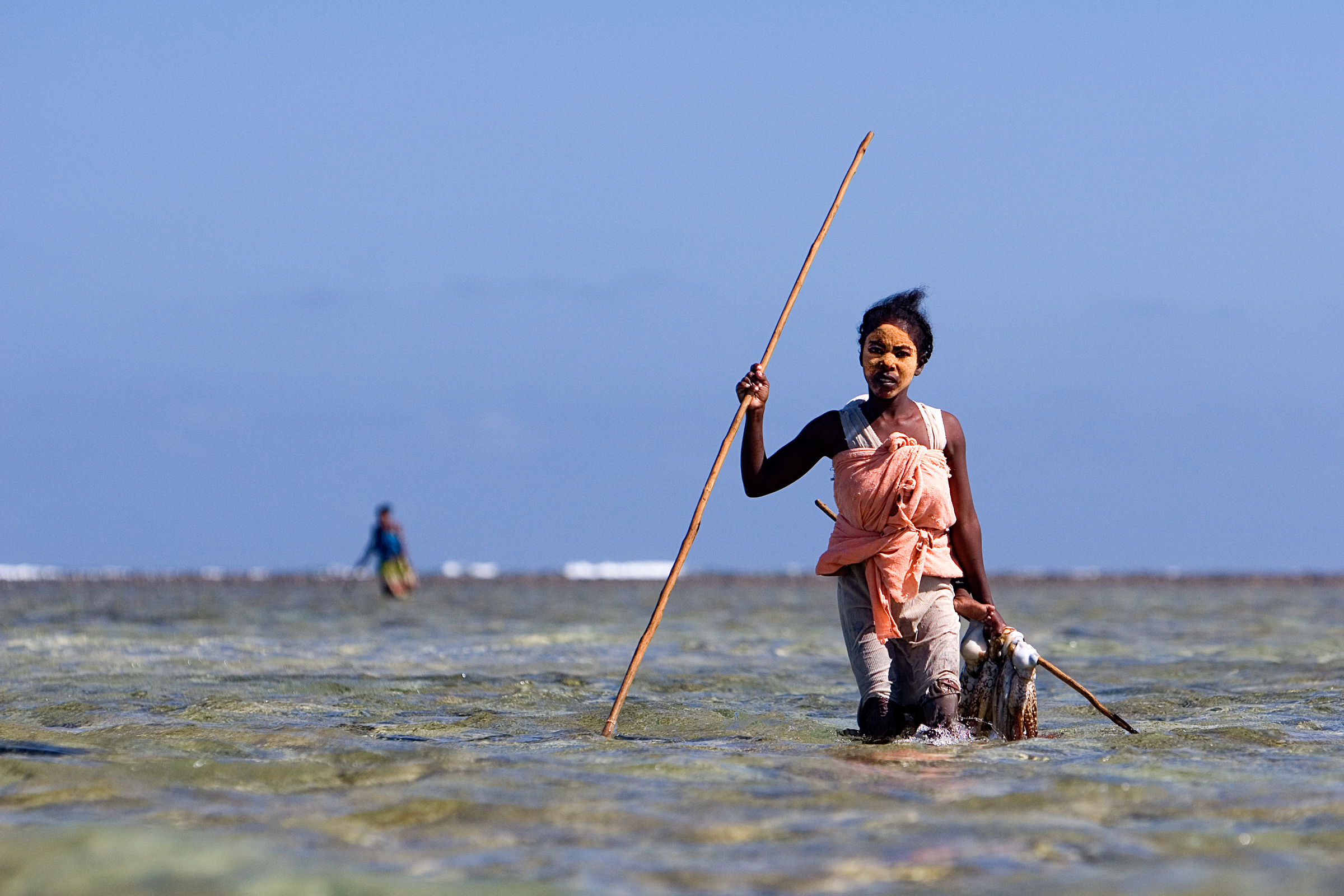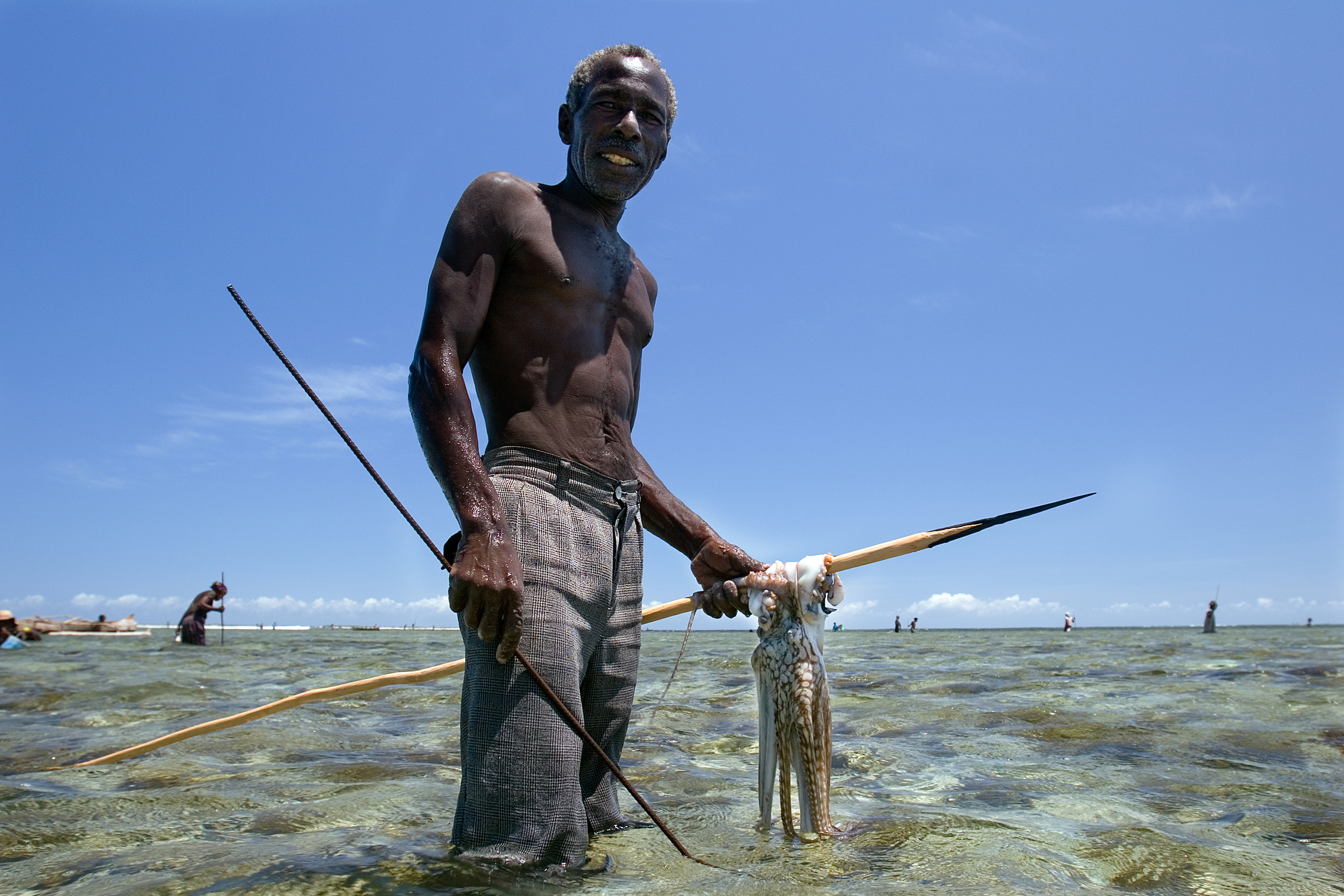



The purpose of this building block is to provide Blue Ventures’ partner community members with positive experiences of marine management, demonstrating that it can yield tangible economic benefits in reasonable timeframes. The short-term octopus fishery closure model involves periodic closures of a portion of a village’s octopus gleaning grounds. At any communally agreed time, up to a quarter of a community’s fishing area may be closed for around three months. This approach has been shown to result in dramatic increases in octopus landings and improved fisher incomes when closed areas are reopened to fishing (Oliver et al., 2015), thereby sparking and building enduring support for more ambitious marine management efforts (including the creation of permanent marine reserves within locally managed marine areas) that are led by communities, for communities. By returning meaningful economic benefits in timeframes that work for traditional fishers, these temporary octopus fishery closures inspire local leadership in marine conservation. The approach depends on and benefits from broad support from the entire seafood supply chain, with fishers and buyers now contributing to the modest costs of establishing and managing the closures.
- Support from seafood collection and export companies, as they coordinate their collection schedules with the reopening of closures and pay a premium price for octopus on the opening days.
- Leadership of the village president, who mobilised his community to experiment with closures. When the fishing ground reopened, the village experienced increases in both octopus landings and fisher incomes. As news of this fishery boom spread, neighbouring communities started adopting the approach.
This building block works by demonstrating that fisheries management can yield meaningful economic benefits for communities and seafood buyers, in realistic timescales. Only by making this connection can marine conservation be sustained and scaled beyond its current limited scope. We started in Andavadoaka monitoring the state of coral reefs but soon realised that we needed to address pressing community concerns about food security and livelihoods before having a conversation about marine conservation. This is why we started with a temporary octopus fishery closure in a portion of a single village’s fishing grounds and discovered that this provided an effective foot-in-the-door for marine conservation by inspiring communities to engage in more ambitious management efforts. Thus, we started with what was important for communities and saw that lead to a more sustainable and socially meaningful form of management than traditional top-down protection efforts.